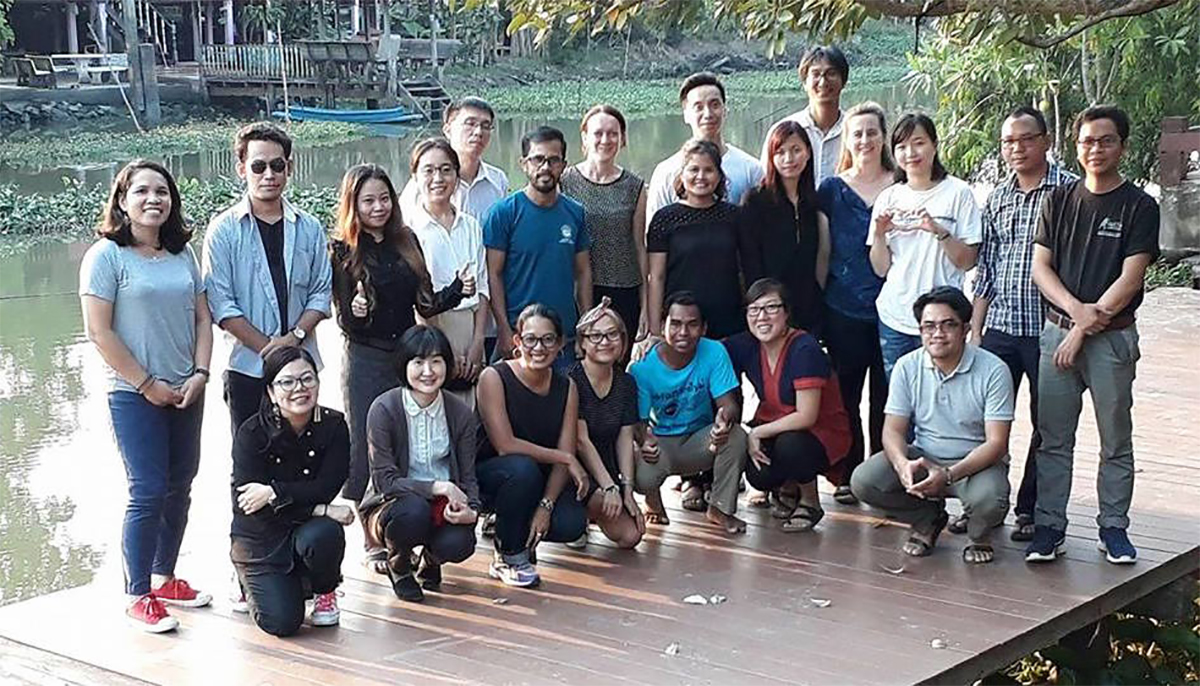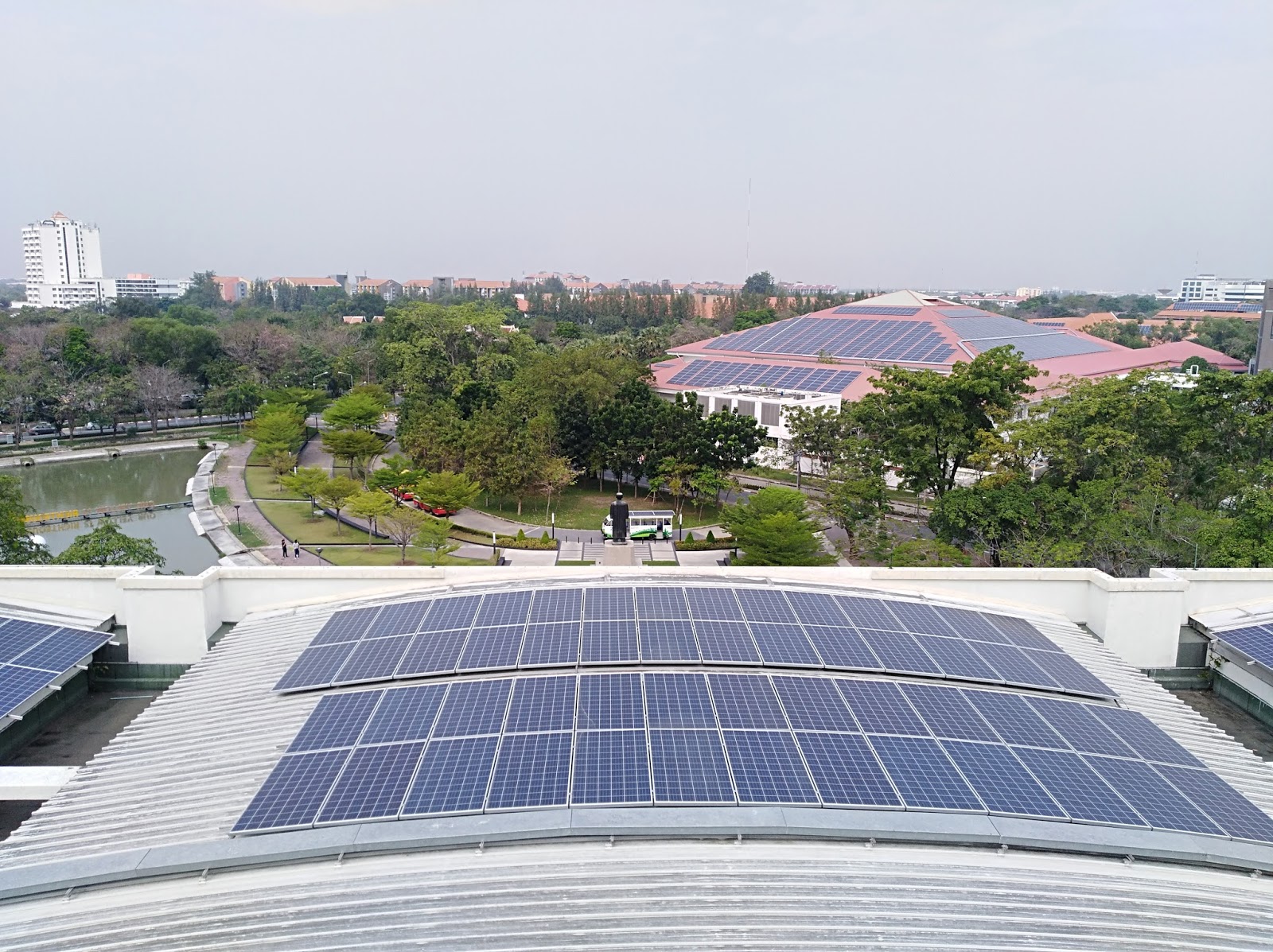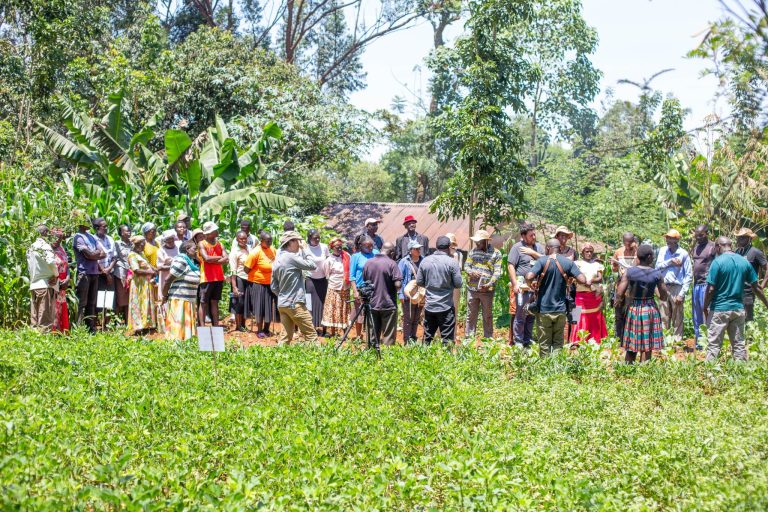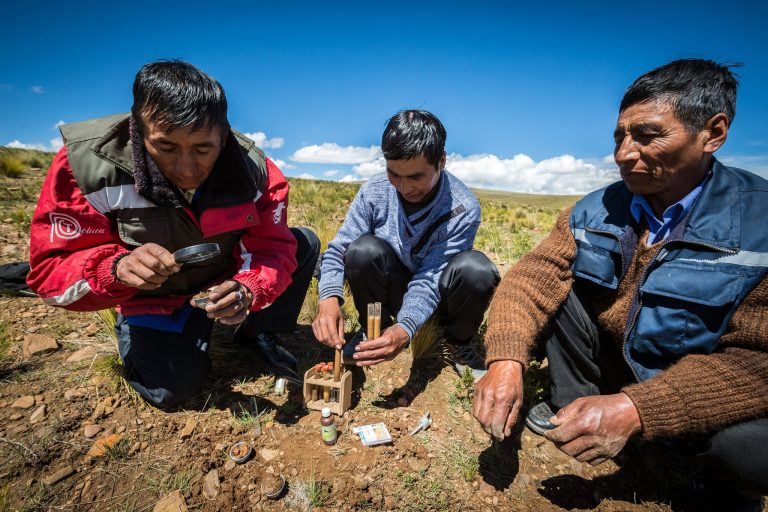In January 2018, a group of 20 civil society representatives gathered in Nonthaburi, Thailand for the Mekong/Myanmar Regional Energy Policy Advocacy Training.
With support from the McKnight Foundation, as well as Oxfam and EarthRights International, International Rivers brought together environmental and human rights activists, journalists, lawyers, educators, and policy advisors from China, Myanmar, Thailand, Laos, Cambodia, and Vietnam. The participants spent three days exploring the potential of renewables to meet the region’s energy needs.
The region’s future energy plans lean heavily on coal and hydropower. By any measure, however, the human and environmental costs of these technologies are too high. Witoon Permpongsacharoen, Director of the Mekong Energy and Ecology Network, illustrated the dangers by describing the impacts of the completed Pak Mun Dam on local communities.
“1,700 families were forcibly relocated from their homes along the Mun River, where they had fished and farmed for generations,” he told participants. “116 fish species, or 44% of the fish species found in the Mun River, disappeared. The fishery yield dropped by 80%, resulting in the loss of livelihood for approximately 6,200 families.”

The result? “The Pak Mun Dam in Northeast Thailand produces just enough energy to light up a single shopping mall—Siam Paragon—in downtown Bangkok.”
The good news is that the energy landscape is changing. Rapidly declining costs now place solar close to par in price with hydropower, with none of the environmental or social impacts. Despite these shifts, however, renewable energy and energy efficiency still play minor roles in Mekong regional energy plans.
Inspired by this training, local activists hope to change that. But they need support to effectively promote renewables and efficiency as plans for regional energy trade develop. This workshop helped. “I found the most useful part of the training was learning to critically analyze national energy plans and proposals for regional energy trade and to promote more democratic energy planning,” said a participant from Myanmar.
“Rapidly declining costs now place solar close to par in price with hydropower, with none of the environmental or social impacts.”
Those working in national energy planning, policy analysis, and community energy initiatives also benefit from simply forging connections. Participants from more-developed Thailand, and Vietnam, for examples, shared useful insights with activists from Myanmar and Cambodia, countries in the early stages of energy planning.
“My focus this year is on energy finance,” said a participant from Green ID, an environmental advocacy group based in Hanoi, Vietnam. “I look forward to working closely with colleagues from other Southeast Asian countries to promote alternative energy solutions and to bring local voices to national and regional levels.”

The training ended with a field visit to Thammasat University Rangsit campus in Bangkok, where Vice Rector Dr. Prinya Thaewanarumitkul shared his vision to turn the campus into a “smart city” by working with students to reduce waste and increase energy efficiency, and by sourcing electricity entirely from solar energy.
“I feel very proud to hear that there are great people like the leadership at Thammasat University who (are working) together to reduce the impact of CO2 on planet earth and make it a greener place,” a Cambodian participant reflected after the training. “As Dr. Prinya said, they have done their part, and it’s up to us to take action. That change doesn’t start with anyone else, but with ourselves.”


